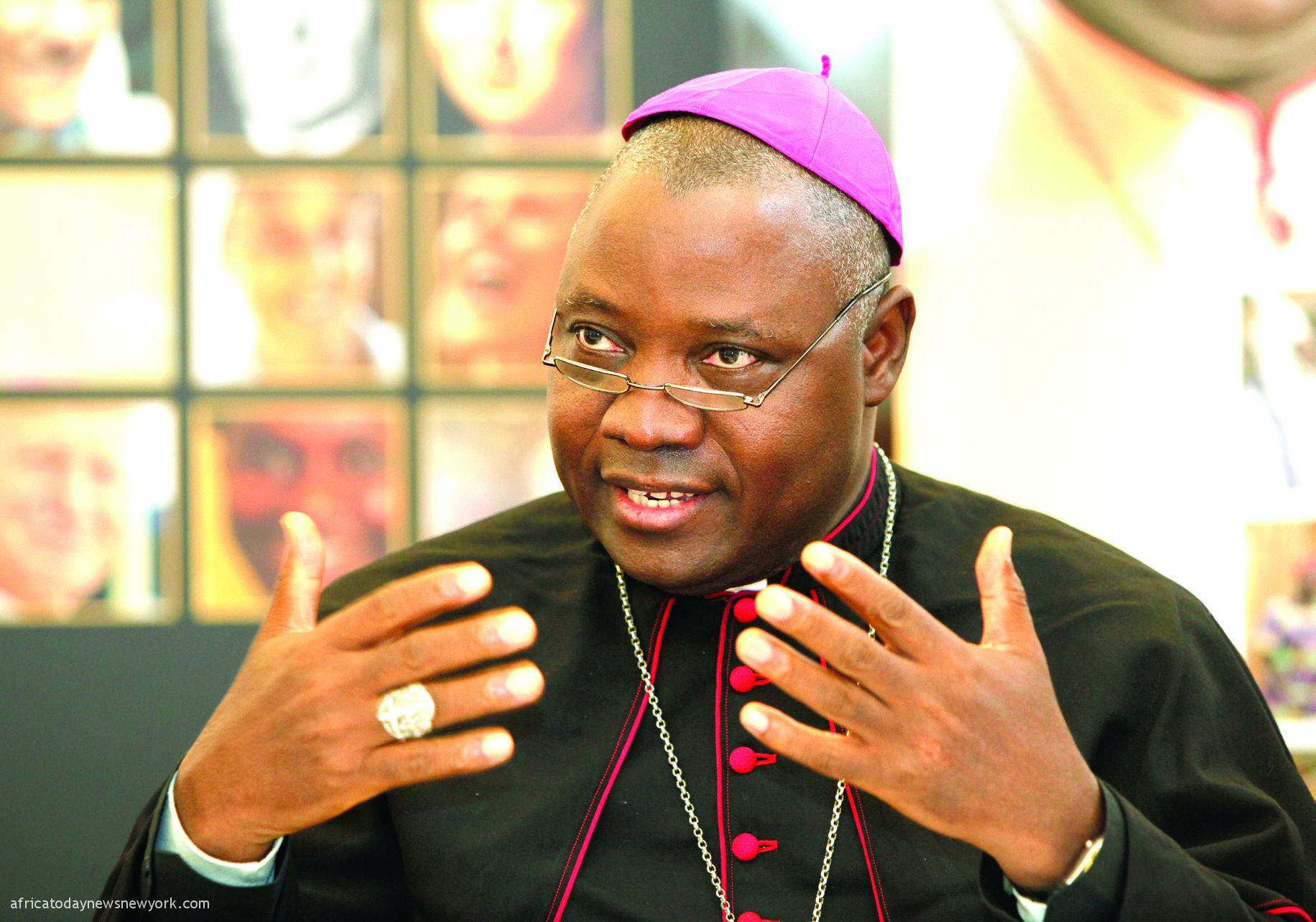In the face of the current economic meltdown and tough situation Nigerians are experiencing, His Grace Most Rev. Ignatius Kaigama, Archbishop of the catholic church, Abuja has implored the Federal Government to do everything possible to redeem the nation and its citizens.
He asserted that a great deal of young people were frantically looking for better places abroad so they can thrive.
Speaking on Saturday at the priestly ordination of 12 Catholic deacons in Abuja, Kaigama stated that the government’s inability to favorably address the demands of the striking university teachers was the reason why millions of youths were unemployed and seen idly wandering on the street.
‘It should worry us terribly that because of bad politics and bad governance, our young ones, discouraged and crippled by socioeconomic conditions at home, are desperately seeking greener pastures in countries that our resources as the so-called “giant of Africa” could be ten times more than theirs,’ He said.
‘We have millions of idle youths, some of them on the streets and some at home due to government failure to let them back to school by positively responding to ASUU demands, and some, because their schools have become unsafe.’
‘More than sixty years after independence and blessed with so much oil wealth, many rural and even urban dwellers are still experiencing the lack of potable water, good and safe roads, modern agricultural tools and today, everyone is feeling the harsh impact of the high cost of fuel, etc.’
‘Electricity supply is epileptic even as smaller countries around us enjoy it better. Instead of seeing politics as a means to good governance and better socio-economic conditions, leaders are employing politics for self-preservation. When it suits them they resort to religious politics.’
‘We get it wrong when some of us lift private religious practices above national interests or the common good, letting religious distrust, suspicion and stereotypes dominate, and refusing to simply see fellow Nigerians as neighbours to be loved and cherished.’
According to Kaigama, a priest’s life is one of contributing more than obtaining. He encouraged the just ordained Catholic clergy to effectively combat the nation’s moral, spiritual, and social vices.
The Catholic Archbishop advised religious leaders to address those in authority with the hard realities which others would most likely avoid, pointing to the prophet Jeremiah’s appeal at a time when Judah’s social and political condition was deteriorating.
‘For the priest today in Nigeria, his task like that of Prophet Jeremiah is to urgently pull down and destroy not the well-built physical structures, but the unhealthy habits rooted in our tribal, political and religious subconscious, which manifest as poisonous prejudices or violent actions.’
‘By the grace of God, this priestly action together with the sincere political will of our leaders will lead us to the national consciousness of being one people and one nation.’
‘If only we use religion to build solid relationships with one another and with God, we will conduct politics without bitterness, malice or violence; we will have an equitable distribution of resources and appointments made into influential positions with greater sensitivity and balance.’
‘This is how we can achieve the much-needed national consciousness and cohesion, when merit dictates national policies or choices and not who you know or what tribe you come from or the religion you practice,’ he said.
However, the priest, criticized the inclination to attribute Nigeria’s issues to religion, pointing out that, according to empirical findings, religious institutions have greatly aided the country through initiatives in education, medicine, and social services.
